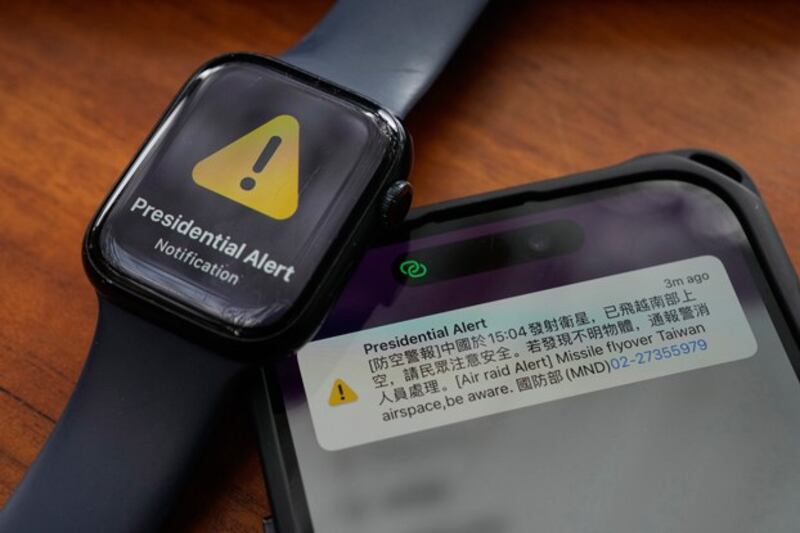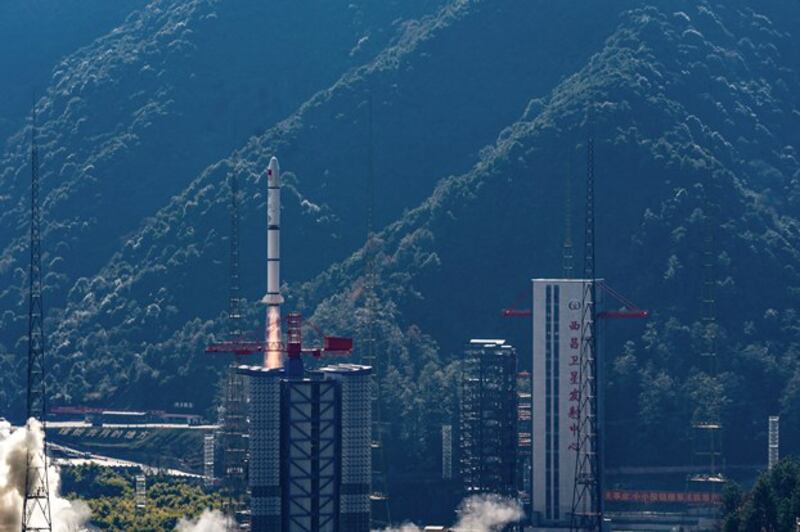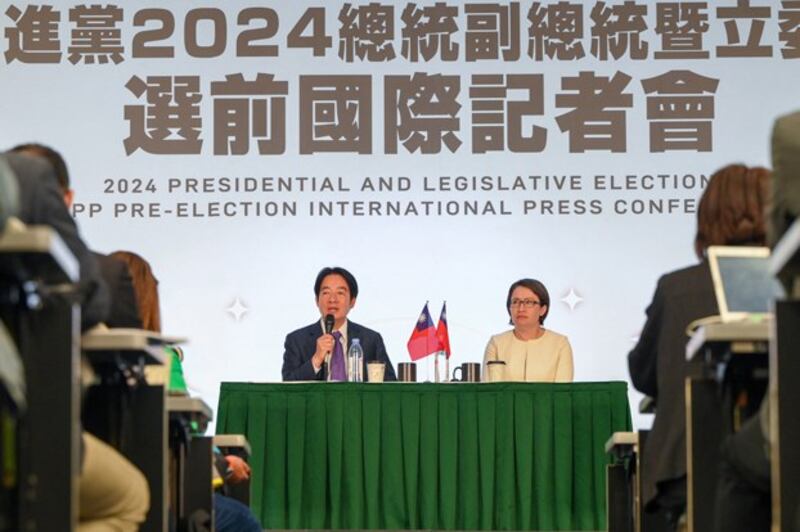Taiwan doesn't need to declare independence, incumbent vice president and presidential hopeful Lai Ching-te told a press conference ahead of Saturday's general election, as the Ministry of Defense issued an air-raid alert over a Chinese rocket launch.
"We do not have any such plan, because Taiwan is already a sovereign and independent country, and there is no need to declare independence," Lai, who is standing alongside running mate Hsiao Bi-khim on the ruling Democratic Progressive Party ticket, said. His comment was a reference to the 1911 Republic of China, the government of which fled to Taiwan after losing the civil war with Mao Zedong's communists in 1949.
As Taiwan counts down the last days of a presidential race, voters must choose between Lai, who has a strong track record of standing up to China, against the more China-friendly opposition candidates – Hou Yu-ih for the Kuomintang and Ko Wen-je for the Taiwan People's Party.
China's threat to force "unification" on democratic Taiwan – referenced in a pledge by Chinese leader Xi Jinping at New Year and rebuffed by Taiwanese President Tsai Ing-wen this week – along with its military saber-rattling in the South China Sea and Taiwan Strait still looms large over bilateral ties, creating ongoing tension.

Lai said, if elected, his plan would be to "maintain the status quo" for the island's 23 million people, who have never been ruled by Beijing, nor been citizens of the People's Republic of China.
His comments came as an air-raid text alert warned Taiwan residents that there had been a "flyover" of the island's airspace by a Chinese satellite launch.
The Ministry of National Defense text alert caused widespread alarm, however, as the English part of the text referred to the satellite as a "missile."
"On 1503 hr today, [China] conducted a satellite launch," the Ministry said in a later statement.
"The trajectory unexpectedly flew over and went exoatmospheric when the vehicle was above Taiwan’s southern airspace," it said, adding that Taiwanese military and intelligence were closely monitoring the whole process.
"The air raid alert system was activated in the form of text messages to inform the public," it said. "The default English message was not revised and therefore incorrectly stated the launch vehicle as “missile.” The MND extends an apology for any confusion this may have caused."
It said China had launched a Long March 2C carrier rocket from the Xichang Satellite Launch Center, sending an Einstein probe satellite into orbit.
Peaceful ideals, but no illusions
Lai told the news conference that there are "no winners in wars," adding that he plans to continue incumbent President Tsai Ing-wen's policy of boosting international support while insisting on "equality and dignity" as a prerequisite for peace talks with Beijing – which treats Taiwan's government as a regional government not eligible for state-to-state dialogue.
"As long as there is equality and dignity, Taiwan's door will always be open and it is willing to communicate and cooperate with China to promote the well-being of people on both sides of the Taiwan Strait," Lai said. "We can have peaceful ideals, but we can't have illusions."

Lai vowed to step up Taiwan's military deterrent to make any potential invasion -- which Chinese Communist Party leader Xi Jinping has refused to rule out as a method of "reunification" – as costly as possible, including bringing back compulsory military service and boosting global supply chain resilience.
He warned against falling for China's rhetoric on "peaceful unification" and its "one country, two systems" promise that was broken in Hong Kong.
"The pursuit of peace relies on strength, not on the goodwill of the aggressor," Lai said. "The goodwill of the aggressor is unreliable. Tibet, Xinjiang or Hong Kong have all been good examples of this."
Lai blamed former Kuomintang President Ma Ying-jeou, who he said put national defense on the back burner during his eight years in office, for accepting Beijing's "1992 Consensus" codifying its territorial claim on Taiwan, "wasting our national security capabilities."

"The direction we advocate for this country is different from that of the opposition Kuomintang," he said, calling on Taiwanese to "use their sacred votes" to wield their democratic power to resist Chinese interference in the elections, in a reference to ongoing Chinese Communist Party-backed information wars and charm offensives targeting Taiwanese voters and officials alike.
"If China's intervention is successful, and the candidate China designates and supports gets elected, then Taiwan's democracy will disappear, and [we will] be electing ... a chief executive, just like Hong Kong," he said, in a reference to the rolling back of Hong Kong's promised freedoms and political autonomy in the wake of the 2019 protest movement.
He said Taiwan's door "is always open" for talks with China, provided they are on an equal footing.
Translated by Luisetta Mudie . Edited by Roseanne Gerin.
